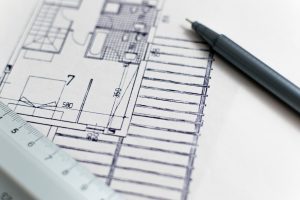
What home improvements require building permits?
Which remodeling items do and don’t need to have permits? Why do permits even exist? How are many real estate investors sabotaging themselves by ignoring the importance of this piece of paper to their profits?
Home Remodeling Projects that Require Building Permits
Home improvement and renovation projects which often require permit approval include:
- Aesthetic changes to the exterior
- Structural changes
- Demolition
- Adding sheds and alternative structures
- Finishing basements and attics
- Moving or adding outlets or plumbing fixtures
- New roofs
- Converting garages
- Additions to a home
- Swimming pools
- New electrical systems, including solar
Like real estate, all building codes and permit regulations are local. Each authority adopts its own codes. Some are completely customized, but most simply adopt variations of international standards. Exact codes may vary by state, county, and city.
Why Do Building Permits Exist?
The very first records of building codes date back almost 4,000 years. They were originally created to ensure safety for consumers, and ethics and quality of work among builders. This is still the basis for having building codes, and requiring builders, licensed contractors, and property owners to obtain approvals and live up to them. Some estimates put the average cost of obtaining a permit in the range of $400 and $1,400. Permits also alert taxing authorities to property improvements, and potential tax increase opportunities. So this certainly makes permitting a significant source of income for local government. At their various levels, building codes also preserve the look of communities, and control who can build what, what it can look like, and what materials can be used.
What Remodeling Projects May Not Need Permits?
Popular home improvements which often don’t require building permits include:
- Painting the inside or outside of a home
- New kitchen cabinets
- Changing existing plumbing fixtures
- Replacing water heaters and AC units
- New fans and light switches
- Installing basic alarm systems
- New phone lines
- Putting in new flooring
- Screening existing covered outdoor spaces
- Recoating driveways
It is important not to assume you won’t need a permit. Some authorities put a maximum dollar amount on improvements which can be made annually without a permit. Low end cosmetic remodels may not trip these limits. Luxury home remodels may go over these limits with just a few square feet of tile or new quartz countertops.
How to Get a Building Permit
Getting a building permit can be a pain. It can appear to add extra time and costs. It can also be easier and less painless than many homeowners and real estate investors expect.
The exact process will differ from area to area, but will generally include:
- Obtaining the application online or in person at the building department
- Submitting detailed plans
- Paying the applicable fees in advance
- Fulfilling any final inspections after work is completed
There are also third party permit services which can help expedite the process. Most contractors involved will also be happy to handle the permit process in order to gain your business.
The Dangers of Buying and Remodeling Properties without Permits
Work done without permits, when they are required, is illegal. Illegal improvements can be catastrophic for property owners. It doesn’t matter who did the work, the responsibility and liability is on the current owner.
The potential penalties include:
- Code violations
- Fines and daily interest penalties
- Liens against your property
- Inability to sell the property
- Condemnation
- Seizure by eminent domain
- Inability to obtain financing, or withdrawal of loans made
Do not underestimate how severe these penalties can be. Some have faced liens of tens of thousands of dollars against their properties.
Building Permits & Real Estate Investing
Whenever building permits are required, real estate investors need to get them. It is just not worth the risk to forgo them. There may be appealing investment opportunities in properties with illegal garage conversions, and other unpermitted work. Experienced investors with good real estate attorneys may find hidden profits in these deals, but tread carefully.
Permits cost money, can take a month – or several – to obtain, and can trigger increased tax assessments and property taxes. For some investors who hope to fix and flip houses in less than a month, it may be necessary to avoid improvements which require permits. Those with the capital and tolerance for much longer hold times – or who plan to and lease them – may be able to find profits others have to pass on.





